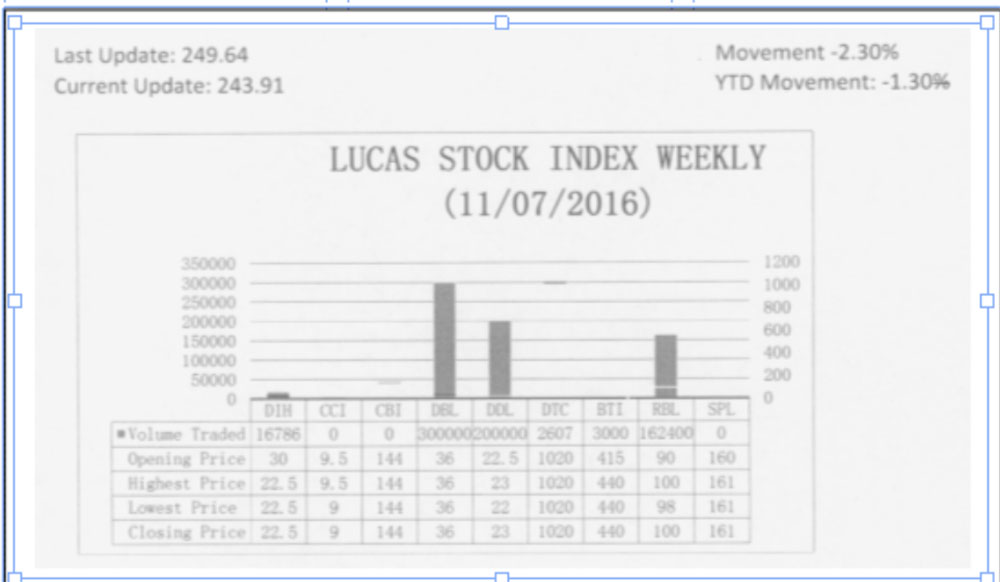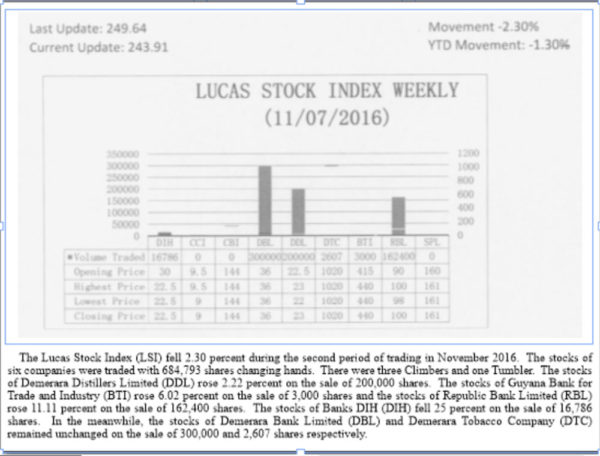Curiosity
Prior to the appointment of members of the Public Pro-curement Commission (PPC) this year, the question that comes to mind is what was the responsibility of Cabinet in the award of contracts over $15 million? The question is linked to the ‘No Objection’ role of Cabinet in the contact award process and the interpretation of that role. In discussing the Procurement (Amendment) Bill of 2013, the ‘No Objection’ role was explained to the National Assembly by the then government as one that enabled the government to be satisfied that “all the steps, the process and the awarding of the contracts were done in accordance with international best practices and to the satisfaction of the procuring entity”.
 This writer is now optimistic that the risks to public finances can be reduced if not eliminated now that the Public Procurement Commission (PPC) is in place. This article seeks to explain this view.
This writer is now optimistic that the risks to public finances can be reduced if not eliminated now that the Public Procurement Commission (PPC) is in place. This article seeks to explain this view.
Brief description
Before delving into the explanation about the nexus between public procurement and public financial management, a brief description of the status of the PPC would be useful. On the 9th of August 2016, the National Assembly approved the motion that dealt with the appointment of the members of the PPC. By that action and the subsequent assent by the President, the PPC was born. The five-member commission was sworn in just over two months after parliamentary approval was received. The formation of the PPC brought an end to nearly 15 years of wrangling about its formation and usefulness. Now that it is in place, Guyanese should be able to look forward to a better functioning procurement process and better outcomes from the various public works.
Fundamental development
The proposal to create a PPC represented one of the most fundamental developments in public financial management in Guyana. Public financial management refers to the set of laws, rules, systems and processes used to mobilize revenues, allocate funds, undertake public expenditure and account for money. The taxes that people pay and how they are used to meet the goals of public policy are fundamental aspects of public financial management. The PPC has the responsibility to ensure that government expenditure on goods and services are done in the best interest of the people. This role is vital because it is estimated that as much as 70 per cent of the budget expenditure goes through the public procurement process. The PPC therefore must put the best systems in place upfront for Guyanese to enjoy the benefits of their tax contribution. The other bodies with responsibility to ensure accountability come long after the deed is done. By the time the auditors and the Public Accounts Committee (PAC) of the Parliament get to a case, money is spent and contractors disappear. This is something that has troubled Guyana for years. However, the PPC has the opportunity to ensure that Guyana can turn sound policy ideas into real outcomes for the people of this country.
Public financial management has several objectives but in terms of the PPC, three of them stand out. The first is that public resources are allocated to projects as determined by the design of the project and the amount of money that it was agreed should be spent on the project. The second objective is to ensure that value for money is being gotten. This goes to the heart of the work of the evaluation committees. The standard decision seems to be to give the contract to the lowest bidder. However, the variance between the cost estimate provided by the government’s engineer and that of the lowest bidder tends to be inexplicably wide. Yet, the evaluation committees tend to favour the lowest bidder. The public has never been told if such a practice works in the best interest of taxpayers. One would expect the PPC to undertake the necessary study to understand the value of such a practice and provide guidance to evaluation committees if it does not work. The third function is to ensure that due process is followed.
Oversight role
The PPC has an oversight role and there is nothing in the Act that says it must get involved in the day-to-day operations of the procurement process. This writer has had the opportunity to make this observation before. According to the Constitution, the PPC is required to “monitor public procurement and procedures …” indicating that it stands outside of the contract award process and is only drawn in to resolve disputes. It has the role also of facilitating the process by making regulations and ensuring that the tender administration has the requisite materials and facilities to carry out its work. Among the things expected of the PPC is that it must be independent and impartial. Standing outside of the process with such a posture enables it to identify and develop standards and benchmarks by which competing contractors and companies could measure and improve their performance over time. Consequently, there is no room or need for a ‘No Objection’ role. Such a role is out of place given that the government itself would have been involved in the contract award process.
As simple as it looks, the establishment of the PPC has raised confidence not only in Guyana but also among the major donors of the international community. One of the key things that creating the PPC does is to strengthen the mechanisms of transparency and accountability. It becomes one more tool that could be deployed in the fight for good governance. The establishment of the PPC gives donors confidence that the money that they give the government will be well spent.
Biggest change
The biggest change that will hit Guyana on account of the creation of the PPC is the separation of politically created fiction from the economic reality of the procurement decision. Up until the formation of the PPC, Guyanese would have had to be satisfied with a refusal to tell the truth. That is no longer the case. The PPC could now get to the bottom of any case where serious questions about the integrity of the procurement process have been raised. Among the many functions of the PPC, two of them stand out in this regard. One is to initiate investigations to facilitate the effective functioning of the public procurement system. The other function that stands out is the mandate that it is given to investigate irregularities and mismanagement of the public procurement system.
As an independent body, the PPC can take off the political overcoat of very serious financial matters and expose the ragged economic and social garments in which contract awards were dressed. The PPP/C administration has been accused of bias and discrimination with respect to the award of contracts. Those accusations are the untested measures of performance by the PPP/C administration. In other words, Guyanese can get to the truth finally of any matter in the award of contracts and cases arousing suspicions that bring the integrity of the procurement system into question. The exercise is intended to fix what might be wrong with the procurement process in the country. Such risks might still be lurking in the system and they need to be taken out.
Important authority
Such an exercise would be facilitated by a very important authority that is vested in the PPC to extract information from anyone that it needs that information from. As such, the PPC could obtain information from any person or any entity for the purpose of any investigation that it is carrying out. It is this possibility that gives this writer optimism about the PPC.











